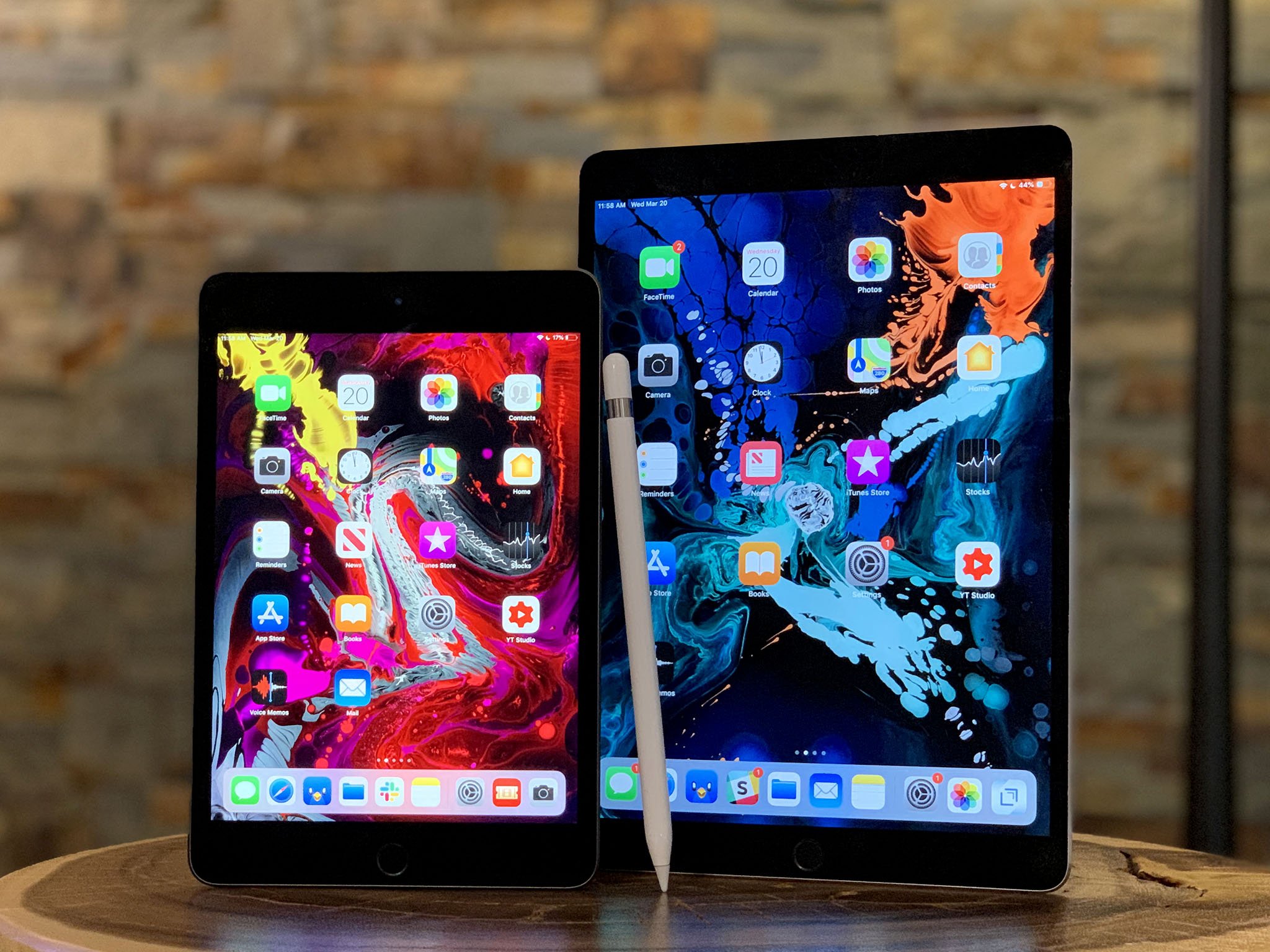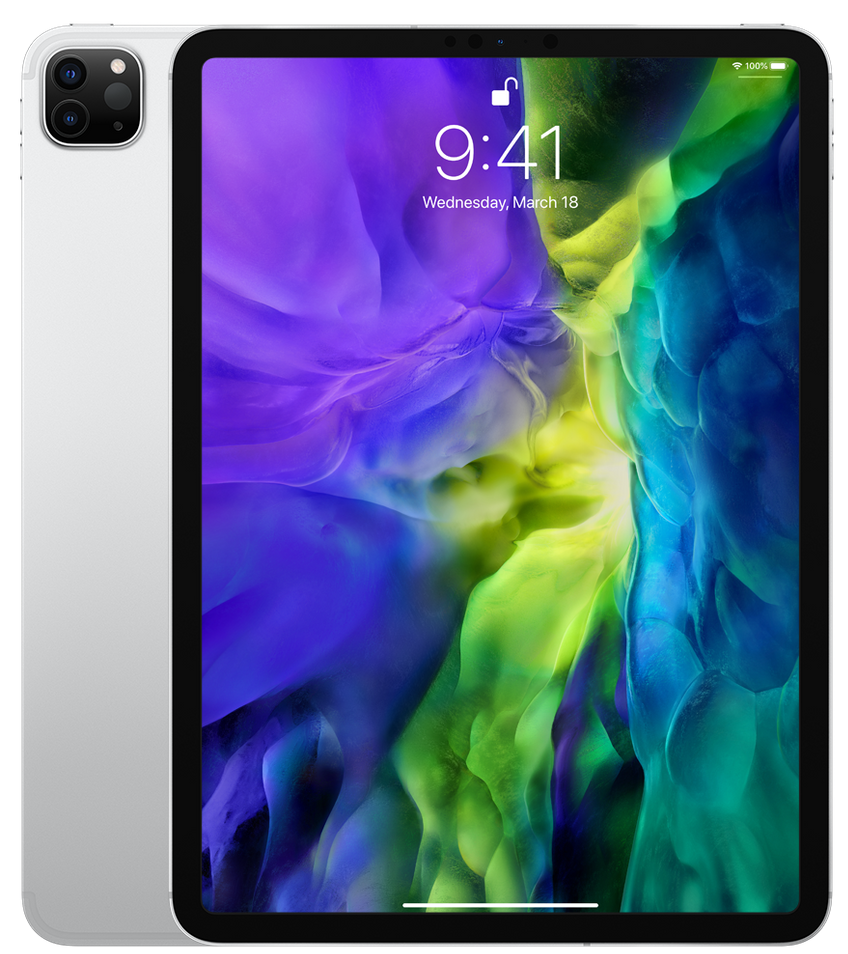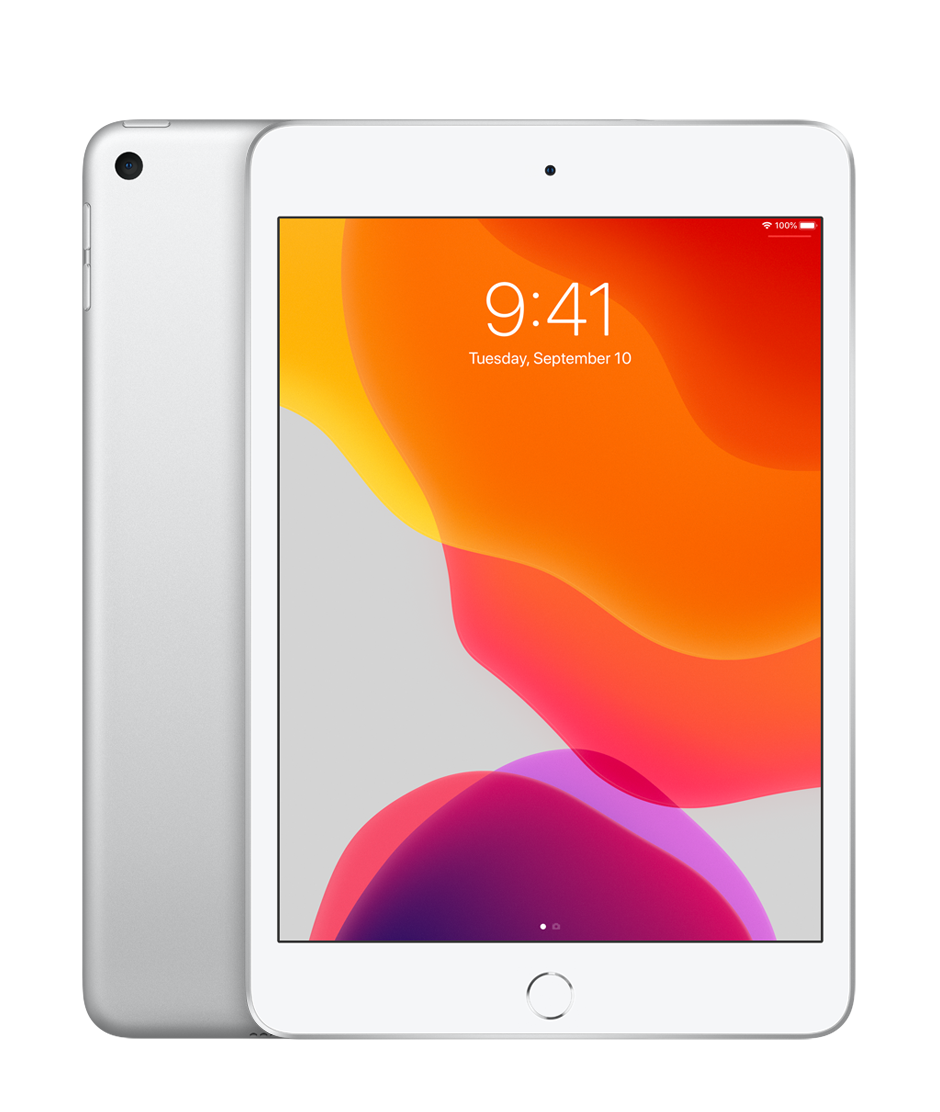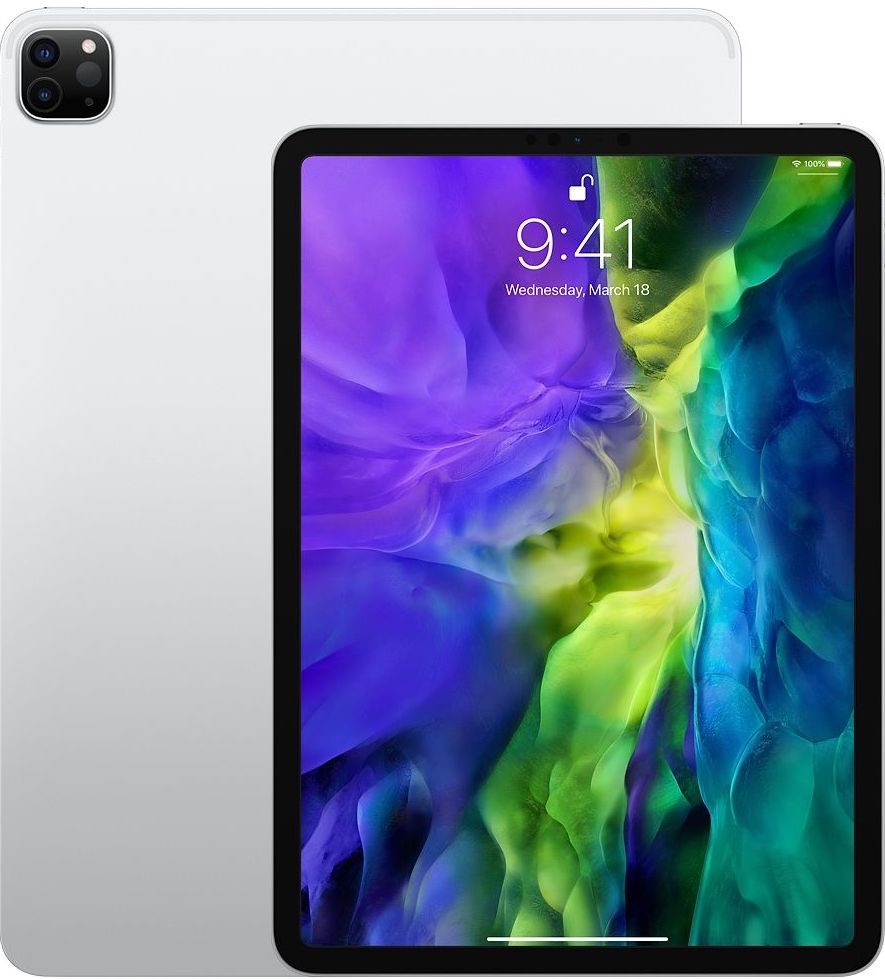iPad Pro vs iPad mini: Which should you buy?


Dream screen
The 2020 iPad Pro is Apple's latest offering. It comes with new features, including an updated camera system with LiDAR sensor, 4K recording capabilities, and a faster processor for pro users, but is it for you?
For
- Larger screen
- ProMotion technology
- Better camera setup
- LiDAR scanner for AR
- Faster processor
- Higher storage options
- USB-C
- Compatible with Smart Keyboard Folio
- Face ID
Against
- Expensive
- Less portable

Tiny but mighty
The iPad mini is tiny and ultra-light with its 7.9-inch display, but the A12 processor inside makes it really powerful for its size. It's probably just the right amount of everything for a lot of users, maybe even you.
For
- Super portable
- Affordable
- More color options
- Better for kids
Against
- Less screen space
- No Face ID
- Older processor
Apple's iPad lineup is worth buying at any price, but it is also will sometimes go on sale on Black Friday. Check out this year's Black Friday iPad deals going on now!
Apple has just updated its iPad Pro with a host of new features, including new camera setup, faster processor, and LiDAR sensor, but how does it compare to the iPad mini, aka Apple's tiniest warrior?
There are many significant differences to note when we look at Apple's 2020 iPad Pro vs iPad mini, so it really comes down to what you're looking to get out of your iPad. Do you need something with a huge screen that'll help you tackle processor-intensive tasks, or is portability the most important thing to you? In an attempt to help you make the right decision while looking for the best ipad for you and your budget, I've outlined the major differences below.
iPad Pro 2020 vs. iPad mini: What are the differences?
If you're an average user looking for a portable device that you can game on, read on, or even get a little work done while on the go, then you might prefer the iPad mini. If you're more of a power user, maybe a content creator or AR developer, then the iPad Pro is likely the one for you…if you have the budget for it. Let's get into the side-by-side details.
| Header Cell - Column 0 | iPad Pro (2020) | iPad mini |
|---|---|---|
| Price | From $799 | From $350 |
| Screen size | 11-inch12.9-inch | 7.9-inch |
| Display | Liquid Retina | Retina |
| ProMotion | Yes | No |
| Weight (Wi-Fi) | 1.41 pounds(641 grams) | 0.66 pound(300.5 grams) |
| Weight (Wi-Fi + Cellular) | 1.42 pounds(643 grams) | 0.68 pound(308.2 grams) |
| Resolution | 2732‑by‑2048 at 264 ppi | 2048‑by‑1536 at 326 ppi |
| Storage | 128GB256GB512GB1TB | 64GB256GB |
| Processor | A12Z Bionic | A12 Bionic |
| Face ID | Yes | No |
| Touch ID | No | Yes |
| Camera setup | 12MP wide-angle10MP ultra-wide | 8MP wide-angle |
| LiDAR | Yes | No |
| Battery life | Up to 10 hours of surfing the web on Wi‑Fi or watching videoUp to 9 hours of surfing the web using cellular data network | Up to 10 hours of surfing the web on Wi‑Fi or watching videoUp to 9 hours of surfing the web using cellular data network |
| 4K recording | Yes | No |
| Colors | SilverSpace Gray | SilverSpace GrayGold |
| USB-C | Yes | No |
| Speakers | Four | Two |
| Smart Connector | Yes | No |
| Magic Keyboard | Yes | No |
| Smart Keyboard Folio | Yes | No |
| Apple Pencil Support | 2nd-generation only | 1st-generation only |
The 2020 iPad Pro has a lot more going for it than the iPad mini, but before you purchase or fall into a really tempting upgrade, you need to ask yourself whether those features will be useful or if they're even relevant to you. Stay with me; we'll dive deeper.
Breaking down the details
Based on Apple's promotional video for the new iPad Pro, the company seems to be offering a replacement for your laptop without actually saying the words. On the outside, the iPad Pro boasts a new dual-lens setup with 12MP Wide and 10MP Ultra-Wide cameras, along with a LiDAR scanner for AR purposes. The iPad mini doesn't have all that as it's still rocking a single rear camera with 8MP.
When it comes to screen real estate, the difference between the two iPads become even more apparent with the Pro rocking either an 11-inch or 12.9-inch display while the mini is just 7.9 inches. The iPad Pro also has Apple's latest Liquid Retina display technology powering its screen while the mini lags behind with Retina display.
Master your iPhone in minutes
iMore offers spot-on advice and guidance from our team of experts, with decades of Apple device experience to lean on. Learn more with iMore!
But despite that, the mini's screen is still gorgeous to look at and boasts 500 nits max brightness with the iPad Pro offering 600 nits. Both displays are fingerprint-resistant thanks to Apple's oleophobic coating. Plus, they're both antireflective and have True Tone capabilities.
Processing power and battery life
As for the processors, the iPad Pro has Apple's latest and greatest A12Z chip, but the iPad mini is no slouch with its A12. Both devices are equipped with M12 co-processors. Both devices also have Apple Pencil support, but the iPad Pro works with Apple's 2nd iteration of the iconic pencil while the iPad mini only supports the first generation pencil.
So, if you go with the iPad mini, you'll still have to charge your pencil by plugging it into the device. However, you won't be able to take advantage of the new double-tap feature found only on the second generation pencil.
One surprising thing to note is the battery life on both models seems to be the same, offering "Up to 10 hours of surfing the web on Wi‑Fi, watching video, or listening to music. Up to 9 hours of surfing the web using cellular data network," according to Apple's site.
While you would typically expect to have a bigger battery in a bigger device, that doesn't look to be the case here. Then once the battery runs out, you can charge your iPad mini with your usual Lightning cable while the Pro comes with a USB-C charging port.
iPad Pro 2020 vs. iPad mini: So which one should you get?
It's hard to recommend a definitive pick between these devices because they are just so different. As I mentioned, it all comes down to what you're looking to get out of your iPad. If you're developing AR apps and games, a content creator working with high-res footage, looking to replace your current laptop, need a bigger screen, and full Magic Keyboard support, the iPad Pro is a fantastic device.
It'll only enhance your workflow and experience with Apple products. Of the two available Pro models, it mostly comes down to whether or not you want the biggest screen available and if it fits your budget.
Now, if you don't consider yourself a "pro user" and you're not looking to replace your computer, then the iPad mini is the way to go. The iPad mini is also amazing as an e-reader because the smaller form factor makes it a lot easier to carry around. It could probably even fit into your pocket…but I don't recommend you keep it there.
The iPad mini is also powerful enough to use if you're on the go and need to quickly get some work done or even edit a short video. Additionally, if you're looking for a tablet for a child, the iPad mini is your best bet.

Stephanie Barnes is a contributor at iMore. She fell in love with technology after building her first PC as a little girl. She later followed that passion to become a front-end/iOS engineer before switching to writing full-time. Stephanie's writing on technology, health and wellness, movies, television, and much more can be found all over the internet, including at HuffPost, HelloGiggles, PopSci, MindBodyGreen, and Business Insider. At iMore, she covers everything from breaking news to product roundups with the latest and greatest devices, apps, and accessories on the market. Stephanie also writes the occasional how-to guide to help readers get the most out of their Apple's devices and services.

